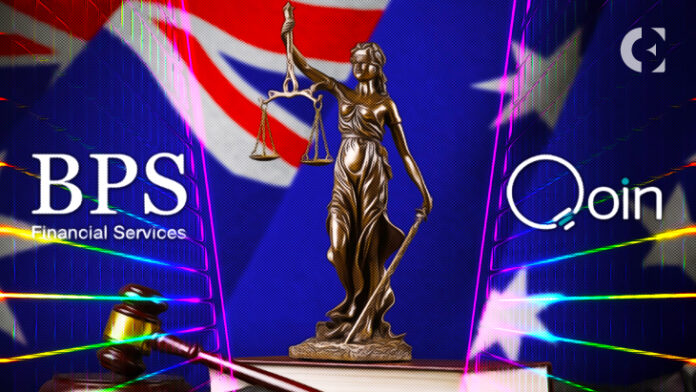- Australian court finds BPS guilty of unlicensed crypto operations with Qoin Wallet.
- BPS is guilty of misleading marketing, selling over $40 million in Qoin Tokens without proper authorization.
- ASIC chair Joe Longo emphasizes the critical need for crypto providers to hold appropriate licenses.
Australia’s crypto community now feels the impact of crypto enforcement as the nation’s primary financial regulator secures its maiden court victory against BPS, the provider of the Qoin Wallet.
On May 3, the Australian Federal Court found BPS Financial guilty of operating without a license. The ruling grants victory to the Australian Securities and Investments Commission (ASIC), which charged BPS Financial for its promotion of QOIN tokens outside established laws.
Since January 2020, BPS actively marketed Qoin tokens as a payment method for goods and services to both individual consumers and business proprietors, who were referred to as ‘Qoin Merchants.’ By the end of September 2022, the Qoin Wallet had been distributed over 93,000 times, and BPS had amassed more than $40 million from selling Qoin Tokens.
In his ruling, Justice Downes determined that the Qoin Wallet constituted a financial product, more precisely, a non-cash payment facility. Accordingly, Downes ruled that BPS had been operating in violation of the Corporations Act by not holding an Australian Financial Services License.
Furthermore, the court found that BPS had misled customers by falsely promoting Qoin as a widely accepted medium of exchange. In reality, virtually no merchants accepted the token, the report stated.
The only exchange facilitating Qoin redemption was BTX Exchange, which had close ties to BPS. While BPS did not execute a direct rug pull, the court found that its actions constituted breaches of several critical laws.
ASIC chair Joe Longo emphasized the importance of this case, stating that it serves as a reminder of the risky and complex nature of crypto assets. “This makes it critically important that providers have the appropriate licenses and authorizations, and that investors are provided with clear and accurate information,” he remarked.
Accordingly, Longo assured that ASIC would persist in its efforts to delineate regulated products and licensing requirements for providers within the industry.
Disclaimer: The information presented in this article is for informational and educational purposes only. The article does not constitute financial advice or advice of any kind. Coin Edition is not responsible for any losses incurred as a result of the utilization of content, products, or services mentioned. Readers are advised to exercise caution before taking any action related to the company.










